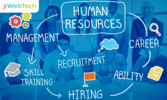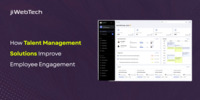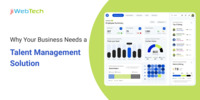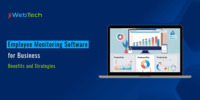- Jan 28, 2025
- Talent Management
- 1904
Share this post on:
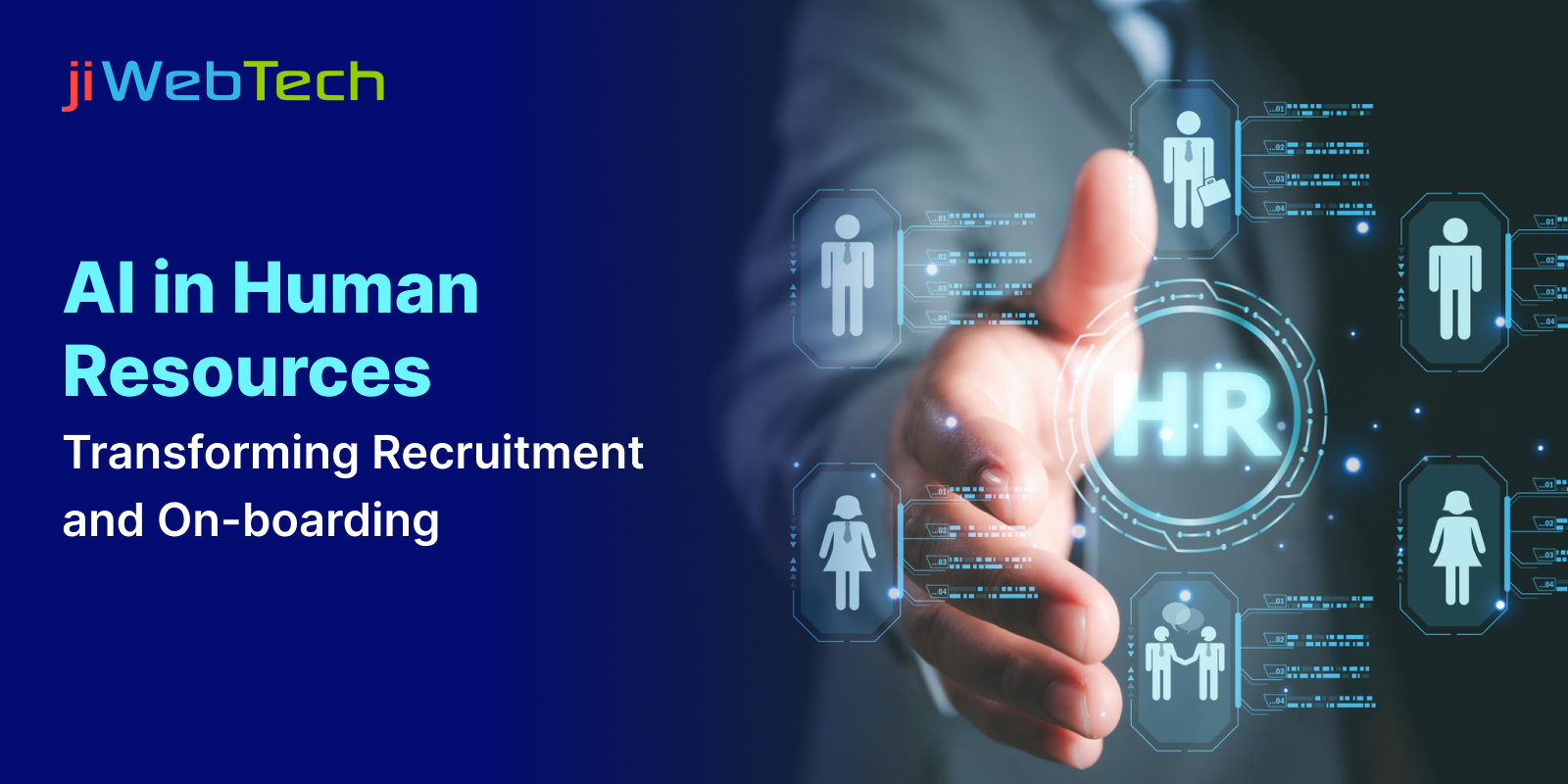
The world of Human Resources (HR) is undergoing a monumental shift, thanks to the rise of Artificial Intelligence (AI). From recruitment to onboarding, AI is fundamentally changing how organizations attract, assess, and integrate talent. HR professionals have traditionally faced the challenge of managing vast amounts of data, ensuring fairness in hiring, and improving the employee experience. With the help of AI, these challenges are becoming more manageable, resulting in smarter decision-making, enhanced efficiency, and better employee satisfaction.
In this blog, we will explore how AI is transforming recruitment and onboarding, discussing the key technologies, benefits, challenges, and what the future holds for AI in HR.
The Role of AI in Recruitment
Recruitment is one of the most critical functions of any HR department. Hiring the right people not only ensures the organization's success but also fosters a healthy work culture. Traditionally, recruitment has been a time-consuming process, requiring HR professionals to sift through hundreds or even thousands of resumes, screen candidates, and conduct interviews. AI has stepped in to automate and streamline many of these tasks, making the recruitment process faster, more accurate, and more efficient.
1. Automated Resume Screening
One of the most time-consuming aspects of recruitment is reviewing resumes. With the volume of applications that many organizations receive, it's a challenge to sift through each one manually. AI-powered resume screening tools help by automatically scanning resumes for specific keywords, skills, and qualifications that match the job description.
Machine learning (ML) algorithms can analyze past hiring data to understand which skills and qualifications are most likely to lead to a successful hire. These algorithms can then rank candidates based on how closely their resumes align with the job requirements. Not only does this speed up the hiring process, but it also ensures that no qualified candidates are overlooked due to human error or bias.
2. Chatbots for Initial Candidate Interaction
AI-driven chatbots are becoming increasingly common in the recruitment process. These chatbots can interact with candidates on a company's career page, answering common questions, guiding them through the application process, and even conducting preliminary interviews. By leveraging natural language processing (NLP), chatbots can understand and respond to candidates’ inquiries in a conversational manner.
Chatbots can also assess a candidate's suitability for a role by asking a series of pre-screening questions. This allows recruiters to quickly identify the best-fit candidates before investing time in more in-depth interviews. This initial interaction can be highly engaging, providing candidates with instant feedback and keeping them excited about the role.
3. AI-Driven Job Matching
Job matching is another area where AI is having a significant impact. Traditional recruitment methods often involve posting job listings and hoping that the right candidates apply. However, AI is making the job matching process much more efficient by analyzing both the requirements of the job and the profiles of potential candidates.
AI-powered platforms can use data from previous successful hires, skills inventories, and professional network data (such as LinkedIn profiles) to recommend candidates who are highly likely to succeed in the role. These platforms continually learn from user behavior and feedback, improving the accuracy of their recommendations over time. As a result, organizations can find the best talent more quickly and with fewer resources.
4. Bias Reduction in Hiring
AI has the potential to reduce bias in recruitment, a persistent challenge in HR. Human biases—whether conscious or unconscious—can influence hiring decisions, leading to discrimination based on age, gender, ethnicity, or other factors. AI algorithms can be designed to ignore irrelevant demographic information, focusing instead on candidates' qualifications, experience, and potential for success in the role.
However, it's important to note that AI itself can sometimes perpetuate bias if not properly trained.
For example, if the data used to train an AI system is biased (e.g., hiring data that favors a particular group), the AI could learn and reinforce those biases. This makes it essential for HR departments to ensure their AI systems are trained on diverse, representative datasets and continuously monitored for fairness.
The Role of AI in Onboarding
Once the recruitment process is complete, the next step is onboarding, which is equally critical in shaping the employee experience. A positive onboarding experience can help new hires feel welcome, engaged, and productive from day one. AI is playing a vital role in optimizing onboarding processes, making them more personalized, efficient, and effective.
1. Personalized Onboarding Experiences
AI-powered platforms can create personalized onboarding journeys for new employees based on their roles, experiences, and preferences. For example, AI can recommend specific training materials or resources tailored to the new hire’s background. This ensures that employees have the right information and support at the right time, which can accelerate their learning curve and help them integrate into the organization more smoothly.
AI can also analyze data from previous onboarding experiences to identify the most effective onboarding strategies and suggest improvements. By learning from past data, AI can continuously enhance the onboarding process to better suit the needs of both new hires and the organization.
2. Virtual Assistants for Onboarding
Virtual assistants powered by AI are becoming an increasingly popular tool for onboarding. These assistants can guide new employees through the various steps of the onboarding process, such as filling out paperwork, completing compliance training, and setting up their workstations. Virtual assistants can also provide answers to common questions, such as how to request time off or how to access company resources, ensuring that new hires have a smooth and efficient onboarding experience.
By automating routine tasks, virtual assistants free up HR personnelto focus on more strategic activities, such as building relationships with new employees and ensuring they feel supported throughout their transition.
3. Streamlined Paperwork and Compliance
Paperwork and compliance are essential parts of the onboarding process, but they can be tedious and time-consuming for both new hires and HR professionals. AI can help streamline these administrative tasks by automating document collection, signature gathering, and submission. AI systems can also ensure that all required documentation is submitted on time and in compliance with regulations, reducing the risk of human error.
Additionally, AI-powered tools can track new hires' progress through onboarding tasks, sending reminders and notifications to ensure that nothing is overlooked. This can help HR departments stay organized and ensure that the onboarding process runs smoothly.
4. Performance Tracking and Feedback
AI tools can also track the progress of new hires during their onboarding period, providing valuable insights into how quickly they are adapting to their roles and whether they need additional support. For example, AI can monitor completion rates for training modules or gauge employee engagement with onboarding materials. If a new hire is struggling, the system can suggest targeted interventions, such as offering additional training or assigning a mentor.
Furthermore, AI can facilitate continuous feedback loops, allowing new employees to provide feedback on their onboarding experience. By collecting and analyzing this feedback, organizations can identify areas for improvement and make real-time adjustments to their onboarding programs.
Benefits of AI in Recruitment and Onboarding
The integration of AI in recruitment and onboarding offers a wide range of benefits to organizations and employees alike. These include:
1. Increased Efficiency and Speed
AI automates many aspects of the recruitment and onboarding process, significantly reducing the time and effort required by HR professionals. This allows organizations to fill positions more quickly, which is especially crucial in industries where talent shortages are prevalent. In onboarding, AI reduces the time new hires spend on administrative tasks, enabling them to start contributing to the organization more quickly.
2. Enhanced Candidate Experience
AI-driven chatbots, personalized onboarding experiences, and faster response times all contribute to an improved candidate and employee experience. By streamlining these processes, AI ensures that candidates feel valued and supported throughout their journey with the company. This can lead to higher employee satisfaction and retention.
3. Cost Savings
By automating routine tasks, AI reduces the need for manual labor, which can lead to significant cost savings. In recruitment, AI can help organizations reduce the need for external recruitment agencies, while in onboarding, AI minimizes the administrative burden on HR departments. These cost savings can be reinvested into other areas of the business, such as employee development or new technology initiatives.
4. Data-Driven Decision Making
AI provides HR professionals with data-driven insights that help them make more informed decisions. From assessing the effectiveness of recruitment strategies to measuring the success of onboarding programs, AI enables HR departments to make improvements based on real-time data, rather than relying on intuition or outdated methods.
Challenges and Considerations
While AI offers numerous advantages, there are also challenges and considerations that organizations must address. These include:
1. Data Privacy and Security
AI systems rely on large amounts of data to function effectively, which raises concerns about data privacy and security. Organizations must ensure that they are complying with data protection regulations, such as the GDPR, and that they are safeguarding candidate and employee information from potential breaches.
2. Over-reliance on Technology
While AI can enhance many aspects of recruitment and onboarding, it should not replace human judgment entirely. AI tools should be used as a supplement to human decision-making, not as a substitute. HR professionals must continue to exercise their expertise and intuition when evaluating candidates and supporting new hires.
3. Training and Adoption
Implementing AI in HR processes requires proper training and adoption. HR professionals must be trained to use AI tools effectively, and organizations must ensure that employees are comfortable with the new technologies. Resistance to change can hinder the successful integration of AI, so organizations must foster a culture of innovation and openness.
Conclusion
AI is revolutionizing the world of recruitment and onboarding, enabling organizations to attract, assess, and integrate talent more efficiently and effectively. From automating resume screening to providing personalized onboarding experiences, AI is helping HR departments overcome traditional challenges and improve the overall employee experience.
However, the successful implementation of AI in HR requires careful consideration of factors such as data privacy, bias reduction, and proper training. By leveraging AI in a thoughtful and strategic manner, organizations can unlock its full potential and build a more effective and inclusive HR function.
At jiWebTech, we specialize in helping organizations harness the power of AI to streamline their HR processes. With our advanced AI solutions, we can help you optimize recruitment, improve onboarding, and drive organizational success. If you’re looking to take your HR function to the next level, reach out to us today to explore how we can help you integrate AI into your operations. Contact us to learn more.





